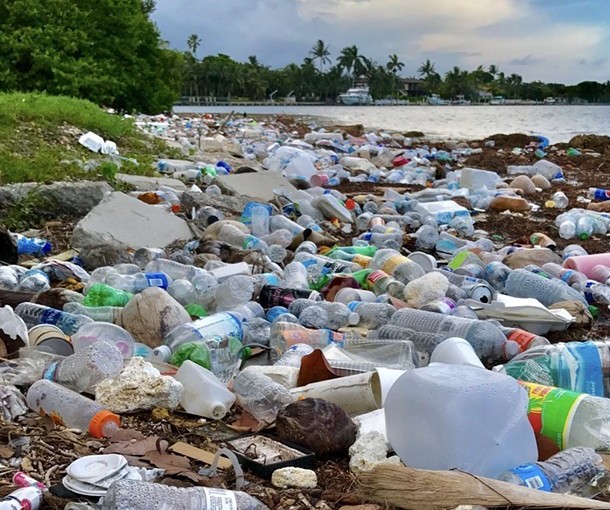Recycling efforts in Florida are failing, despite the intentions of efforts across the state. According to Florida’s Department of Environmental Protection, Florida only hit 42% of its recycling goal in 2019 and will not reach its 2020 goal of 75%.
Much of the problem is due to wish-cycling. Floridians are not doing a good job of recycling; they throw valuable plastic bottles and aluminum cans in the trash. Many of the cups, bags, trays, plates, and cutlery found in curbside recycling containers are not recyclable. Electric cords, clothing, and other items are clogging up machinery. These contaminated loads are costing local municipalities thousands of dollars. The Waste Management plant in Pembroke Pines must send works in two to three times a day to cut out plastic. This is dangerous and costly placing workers at risk and delaying the processing of material.
“It is going to take some effort to solve this problem.”
Not only must we learn to recycle correctly, but resources and infrastructure must also be built to encourage changes in behavior. The United States is running out of landfill space. The National Solid, Wastes Management Association states that we have about 20 years of disposal capacity left in existing landfills. Expanding landfill space is expensive. Orange County, Florida, is expanding its landfill by 30 acres at the cost of just under a million dollars an acre, and it will be at capacity.
Recycling in the United States is broken because the state and federal governments did not develop a domestic recycling infrastructure. With no federal recycling program, recycling decisions are made at the local level. Most plastics were shipped to China. At one point, China was buying 70% of the world’s plastic. Recently, China implemented Operation Green Fence and its domestic plastic bag and single-use straw ban to fight against substandard recyclables. Almost 22,000 containers were rejected, with the recyclers facing the financial burden of paying for the container’s return. With China rebuffing our recycling, more of it ends up as garbage.
Recycling alone will not solve the threat that plastic pollution has on our oceans and environment. By 2025, plastic production is expected to increase by 33 to 36% due to the fracking boom. We need to tackle the problem at the source as well. In 2020, the Florida senate killed a bill in committee that would prohibit businesses from providing customer carryout bags made of plastic film and would prohibit food service businesses from providing customers with single-use plastic straws. There needs to be a financial incentive for companies to create a cradle to cradle system where goods are used, reused, and recycled back into the production process. Manufactures need to account for costs to the ecosystem.
Every Floridian should contact their elected representative at the state and federal government levels and tell them you want universal change to our recycling infrastructure. Urge them to address plastic pollution and support legislation such as the “Break Free from the Plastic Pollution Act of 2020.”
